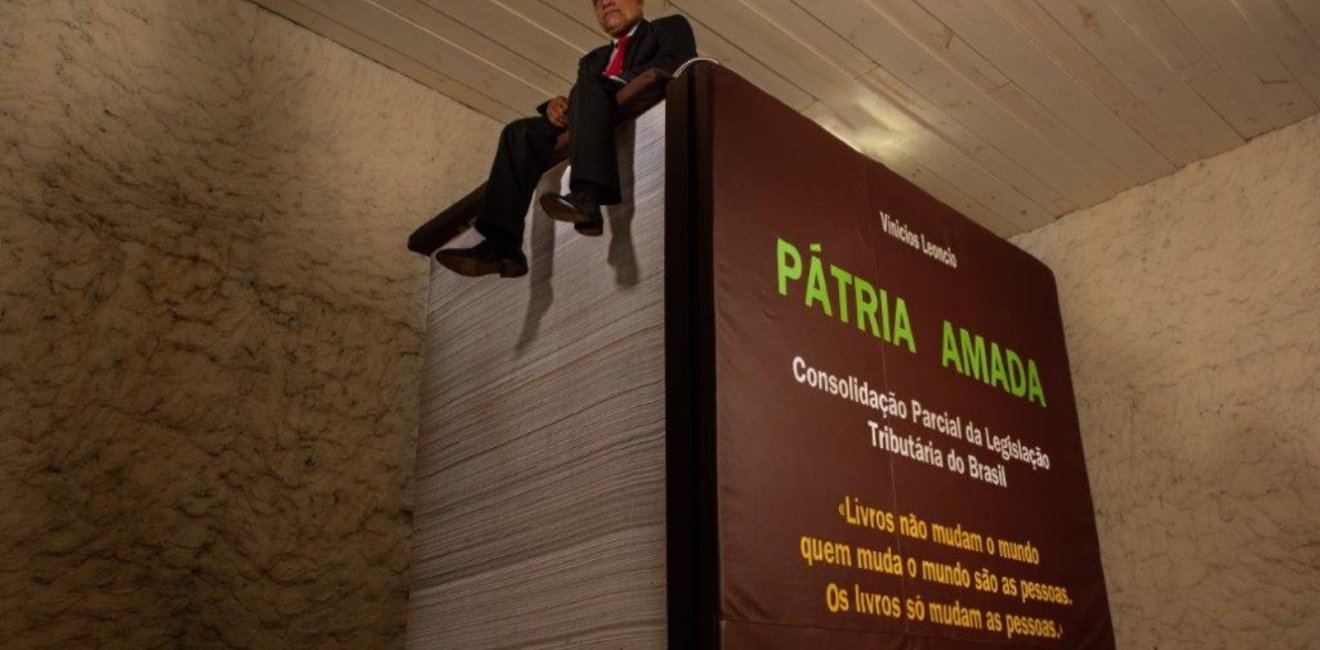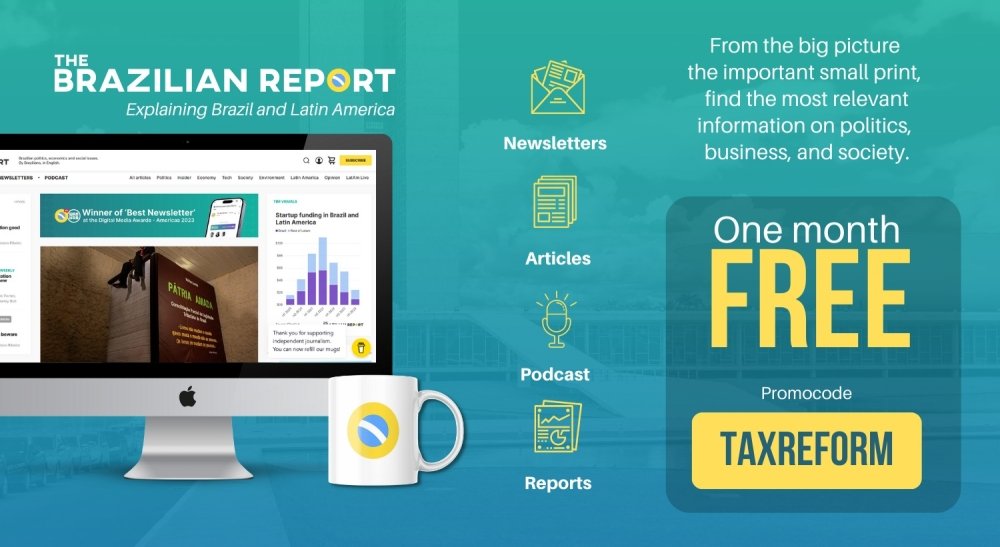Tax in Brazil: From Madhouse to Much Needed Reform
Tax lawyer Vinícios Leôncio spent more than two decades of his life compiling Brazil's tax laws into a single book. The finished article had almost 50,000 pages.

A blog of the Brazil Institute
Tax lawyer Vinícios Leôncio spent more than two decades of his life compiling Brazil's tax laws into a single book. The finished article had almost 50,000 pages.

A book that weighs 15 tons, is seven-feet high, and contains nearly 50,000 pages. It exists in real life and is on display in Minas Gerais state in a hotel room — the only place where the author, tax lawyer Vinícios Leôncio, found enough space to house it.
And this ludicrously large book consists entirely of Brazilian tax laws.
An average of 35 new tax rules are written every day in Brazil, making the effort of learning them all — let alone how to apply them — an inglorious and almost impossible task. "As we speak, you can bet there is a new rule being made somewhere in the country," says Mr. Leôncio, who runs a law firm specializing in taxes in Belo Horizonte, the capital of Minas Gerais.
It's not uncommon for those who pay taxes not to know exactly what they're paying, and those who collect not to know what they're collecting. Even so, Brazil's Federal Revenue Service is ruthless — it is nicknamed the "Lion" for its aggressiveness in finding possible collection errors.
Brazil has several different tax regimes at the federal, state, and municipal levels — which often overlap. The country's notorious bureaucracy increases the cost of doing business in Brazil and stifles innovation.
According to 2019 World Bank data, it takes an average of 1,500 hours per year (or 187 eight-hour workdays) to comply with Brazilian tax laws.
<div class="flourish-embed flourish-chart" data-src="visualisation/14020607?59046"><script src="https://public.flourish.studio/resources/embed.js"></script></div>
Recently, the lower house of the Brazilian Congress approved a tax reform proposal from the federal government aimed at simplifying this complicated set of rules.
Several consumption taxes will be merged into two value-added taxes (VATs), called CBS (federal) and IBS (local).
The proposal is now ready for a vote in the Senate.
Finance Minister Fernando Haddad reportedly expects senators to modify a 35-page last-minute amendment by lawmakers with several new provisions, such as allowing state governments to keep additional taxes on primary and semi-finished goods until 2043, replacing similar funds in some state governments.
Reforming Brazil's baroque tax code is something that has been considered several times over the past few decades, but only now has reached the stage where it could be effectively implemented.
"The tax reform vote required substantial agreement across political lines," says Bruna Santos, director of the Wilson Center's Brazil Institute. "This included support from the left, the center, and even some members of Jair Bolsonaro's party. It's truly a significant development."
Mr. Leôncio's huge book of tax laws was written between 1991 and 2014 and has not been updated since. He calculates that, if he had continued his work, the book would have doubled in size, perhaps reaching 30 tons.
"After this tax reform, the book would shrink by at least 95 percent. I think it would weigh less than 100 kilograms," says the lawyer. At least 6,000 different laws will be consolidated, by his count.
One of the most important changes in the reform is that, once it takes effect, taxes will no longer be levied cumulatively. Products will be taxed at the point of destination, which seeks to end the so-called “tax wars” in which states try to one-up each other by offering more attractive tax incentives to lure companies.
According to the federal government, the reform will not effectively reduce the amount of taxes Brazilians pay or the amount collected. A system of checks and balances will be devised to compensate for possible losses with taxes specifically earmarked for states and municipalities — after complaints from these entities. A council will be created to administer the VAT tax rules.
The economic gain for the country from the reform, according to experts, would come from the greater efficiency of the tax system — which could increase competitiveness and improve collections in the long term.
There is a promise to reduce the tax burden on essential items such as food and medicine, but the specific rates that will affect these products have not yet been defined. About 42 percent of Brazil's tax revenue comes from consumption, the most regressive form of taxation because it hits the poor proportionally heavier.
Items in the basic basket of food necessities will have a zero CBS rate, but a supplementary law is still required to establish exactly which products will benefit. The final impact on prices, inflation, and the economy as a whole is still unknown.
"Even with the lack of definition on many of the final rates, we'll now have some clarity," says Mr. Leôncio. "I think it finally happened because society has matured and lawmakers realized we need to get out of the madhouse."


The Brazil Institute—the only country-specific policy institution focused on Brazil in Washington—aims to deepen understanding of Brazil’s complex landscape and strengthen relations between Brazilian and US institutions across all sectors. Read more


The Wilson Center’s prestigious Latin America Program provides non-partisan expertise to a broad community of decision makers in the United States and Latin America on critical policy issues facing the Hemisphere. The Program provides insightful and actionable research for policymakers, private sector leaders, journalists, and public intellectuals in the United States and Latin America. To bridge the gap between scholarship and policy action, it fosters new inquiry, sponsors high-level public and private meetings among multiple stakeholders, and explores policy options to improve outcomes for citizens throughout the Americas. Drawing on the Wilson Center’s strength as the nation’s key non-partisan policy forum, the Program serves as a trusted source of analysis and a vital point of contact between the worlds of scholarship and action. Read more


